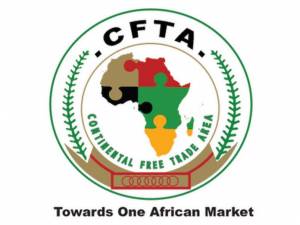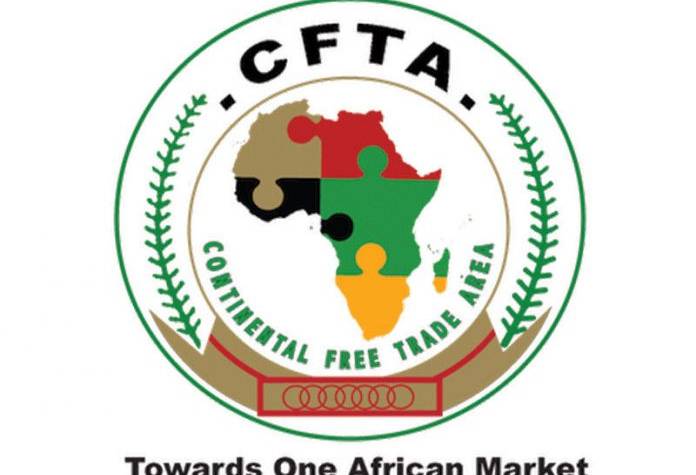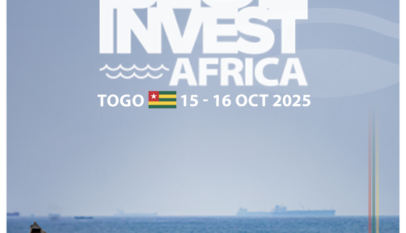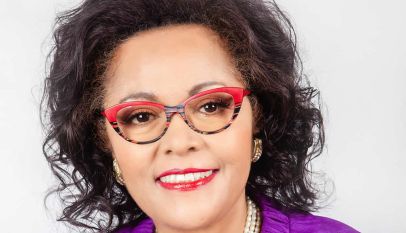BLOG | Mainstreaming Gender in AfCFTA’s implementation
The African Continental Free Trade Area (AfCFTA) Agreement aims to create the world’s largest free trade area, increasing intra-African trade by between US$50 billion to US$70 billion, by 2040. Likewise, the African Union identifies Agenda 2063’s Goal 17 (full gender equality in all spheres of life) as a priority goal.
By Adam Alqali

AfCFTA and gender
While the AfCFTA does not exhaustively address gender, it identifies the promotion of gender equality as its explicit objective – for the first time by any African trade agreement. AfCFTA’s Article 3 (e) seeks to advance “full and equal” participation of women in an integrated continental market while Article 27 of its Protocol on Trade and Services supports improvement in women’s export capacity.
Thankfully, the AfCFTA Secretariat is planning a Protocol on Women and Youth – to mainstream women and youth in AfCFTA’s implementation. This is in line with the UN’s 2030 Agenda which seeks to end barriers to women’s and girls’ realizing their full potential.
Gender inequality is currently costing sub Saharan Africa US$95 billion, annually. Forecasts indicates the AfCFTA would boost wages for women by up to 10.5% by 2035. Also, the Agreement’s distributional effects could lead to up to 10% increase in wages and contribute to closing the gender wage gap, with industries that disproportionately employ women such as agriculture and agro-food processing expected to grow even faster across the continent.
Yet, the Agreement’s numerous gender-specific benefits will not be spontaneous. In fact, without gender-responsive strategies, AfCFTA’s trade liberalization could worsen prevailing gender gaps. Consequently, African countries have to evolve inclusive strategies for mainstreaming gender in their respective national implementation and operationalization strategies.
Gender-specific trade barriers
Although they are potentially a powerful force for sustainable development, African women are confronted by entrenched gender-based discrimination and pervasive inequalities. Consequently, efforts by women-owned businesses to upgrade into higher-value activities and expand their operations to new markets, are limited by gender-based barriers. Because they largely work in the most vulnerable sectors of the economy, the Covid-19 pandemic also excessively affects women.
These barriers include limited access to finance; literacy and business skills; agricultural land; information; technology; cumbersome as well as costly business registration procedures; and gender-based violence (GBV), namely physical and sexual attacks. Due to this crippling barriers, 9 out of 10 African women are in informal employment including Informal Cross-Border Trade (ICBT) where they constitute 70% and suffer disproportionately from numerous challenges preventing them from leveraging their full potential.
Women in ICBT are constrained by high duty and tax levels; poor border facilities; lengthy clearance processes; weak border governance; and lack of understanding of trade policies and regulations. Others are limited capacity to trade high value-added goods; bribery and corruption at borders; limited capacity to diversify the set of goods they trade; limited access to financial resources; and misinformation about customs procedures and regulations
Generally, women are disadvantaged by financial systems steeped in patriarchy which treat them as men’s subordinates; and consequently are discriminated against by lending institutions. For example, married women in several African countries cannot obtain bank loans without their husband’s authorization.
Moreover, low levels of education among women in business means substantial competitive disadvantage in accessing market information, extension services, credits as well as complying with standards and regulations. Subsequently, women in ICBT are particularly excluded from training opportunities while their voices are absent in trade negotiations and policymaking. Noteworthy, women are constrained by time-intensive reproductive and family care, further limiting their entrepreneurial activities vis-à-vis their male counterparts.
Mainstreaming gender in AfCFTA
Against the foregoing impeding barriers against women entrepreneurs, ensuring the female gender equally benefits from the impact of AfCFTA’s trade liberalization, requires gender mainstreaming in the implementation and operationalization of the Agreement, particularly at country level. Gender mainstreaming means systematically identifying gender-specific barriers confronting female traders, entrepreneurs, and wage-workers so as to turn the transformative promise of the AfCFTA into tangible progress for African women.
Despite these prevailing challenges, the Agreement offers a unique opportunity to put women at the centre of building back better in post-pandemic Africa. Yet, mainstreaming gender in the AfCFTA demands policymakers to analyse both opportunities and potential barriers to women’s effective participation in the CFTA. Gender-responsive trade facilitation measures could address many of the gender-related barriers limiting women’s export capabilities across formal and informal sectors.
This entails simplifying, modernizing and harmonizing customs and border procedures, reducing high transaction costs, improving transparency as well as enactment of a continent-wide Simplified Trade Regime (STR). Since implementing and operationalizing the AfCFTA would largely be at discretion of African countries, gender mainstreaming requires a gender-sensitive interpretation of the Agreement by them.
Gender mainstreaming also requires identifying new sectors and value chains with potentially great socioeconomic impact on women, alongside complementary measures to facilitate women’s entry into the identified areas of economic opportunities. Additionally, gender-disaggregated data should inform evidence-based interventions tackling wide-ranging barriers against women benefiting from the economic and trade opportunities to be created under the AfCFTA.
It is worth mentioning that increased intra-African trade alone will not automatically advance gender-equitable outcomes; thus only ensuring gender mainstreaming in AfCFTA’s operationalization and implementation will guarantee the enactment of effective national policies and complementary measures (beyond trade policies) that will ensure women and men benefit equally from AfCFTA’s immense economic opportunities.
These complementary measures should include access to finance; capacity-building on digital, literacy and financial skills; business mentorship; export-import procedures; logistics management; rules of origin; business and financial management. Others are facilitating market linkages; gender-responsive procurement policies; as well as childcare services.
Although trade liberalization offers women entrepreneurs the opportunity to access new export markets, women could be adversely affected by liberalization policies because of gender biases. Thus, mainstreaming gender in Africa’s flagship trade agreement is key to the realization of the AfCFTA’s unprecedented potential for reducing Africa’s persistent inequalities and fostering inclusive economic growth and transformative change.











